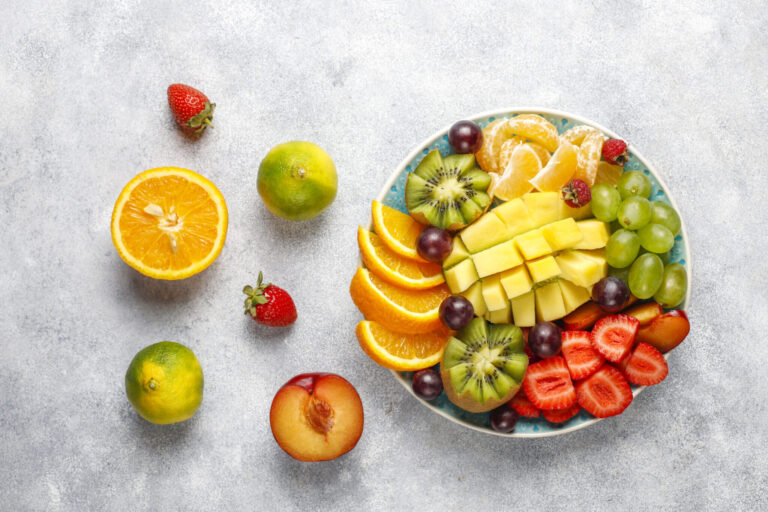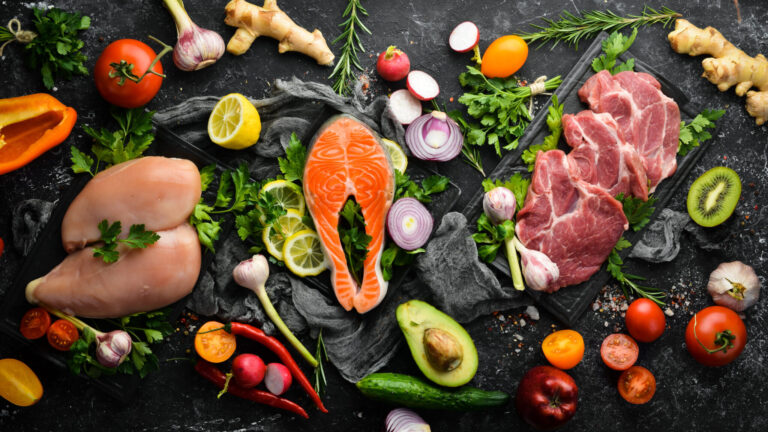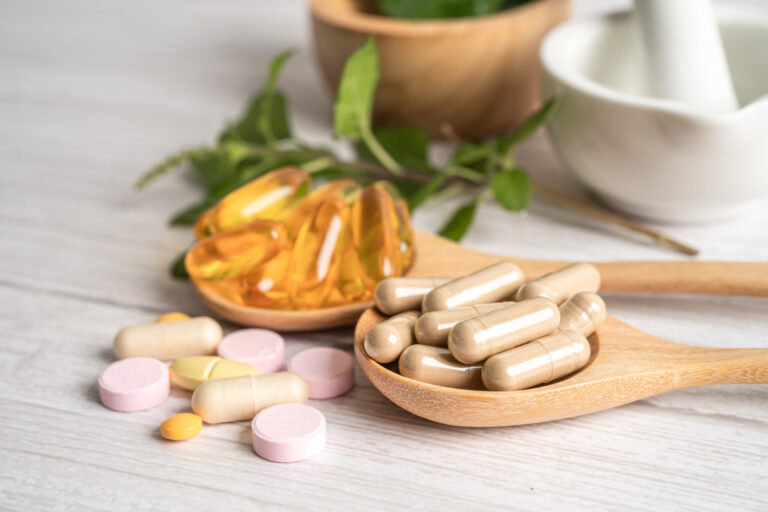Best Sweeteners for gut health | Healthy Sugar Substitutes
Your guide to the best sweeteners for gut health. Learn about different types of sweeteners and the impact they have on your gut health.
Contents
Artificial Sweeteners and Gut Health
Many people turn to artificial sweeteners or sugar substitutes for a healthier alternative to traditional table sugar intake, but not all of these alternatives are equal when it comes to the impact on gut health.
One healthy option is stevia, a plant-based sweetener that has been shown to have positive effects on gut bacteria and digestive function
Another option is monk fruit sweetener, which also has a positive impact on gut bacteria and can even help reduce inflammation in the digestive tract. On the other hand, consuming too much artificial sweetener like aspartame may lead to an imbalanced gut microbiome and negative effects on digestion. By choosing healthy sugar substitutes like stevia or monk fruit, you can enjoy a sweet treat without compromising your gut health.

What type of sweeteners are there?
There are 5 types of sweeteners. Lets try and keep this simple.
- Artificial sweeteners, such as aspartame and sucralose
- Natural sweetener alternatives to artificial sweeteners. These sweeteners to not contain sugar, such as stevia and monk fruit extract so are seen as a low calorie sweetener or non-nutritive sweetener
- Sugar alcohols. These include xylitol, mannitol, sorbitol.
- Ultra-refined sugars found in processed foods and sugar sweetened beverages
- Minimally refined sugars such as raw honey, real maple syrup, raw sugar and molasses
- Whole food plant based sweeteners.
All the sweeteners found in categories 2-6 can be considered natural sweeteners as they come from plants found in nature. However the level of processing extracts them from the whole plant they came from and therefore from the fiber and nutrients that usually come in the food as a package are discarded.
1. Artificial sweeteners
What are artificial sweeteners?
An artificial sweeteners is a synthetic or artificially created substances that are used to sweeten foods and beverages. Some examples include aspartame, sucralose, and saccharin. These sweeteners have a much lower calorie content than sugar and are often marketed as a healthier alternative for weight management and blood sugar control.
Most of these low calorie sweeteners are much sweeter than sugar so a small amount is needed to give the sweet taste. For many years, due to the low calorie count of these non-nutritive sweeteners, they have been used and promoted as a healthier alternative to sugar.
Where artificial sweeteners are used?
Artificial sweeteners are commonly found in many processed foods such as
- diet sodas candy,
- jelly,
- jam
- baked goods,
- dairy products
- other low calorie or sugar-free food products.
They may also be used in some pharmaceutical drugs and toothpaste.
Are artificial sweeteners safe?
The FDA has approved the use of certain artificial sweeteners, such as aspartame, for human consumption. However there is much emerging data that suggests artificial sweeteners have important negative impacts on health particularly gut health, heart health and metabolic health. A number of studies are indicating that the use of artificial sweeteners alter the gut bacteria which contributes towards insulin resistance and glucose intolerance both of which impair blood sugar regulation.
Artificial sweeteners list
An artificial sweetener gives a sweet taste to food without adding calories to the diet. The common artificial sweeteners are listed below.
Aspartame (NutraSweet, Equal)
Aspartame is a synthetic sweetener found in many sugar-free or low-calorie processed foods and beverages. It is about 200 times sweeter than sugar, so only a small amount is needed to achieve the same level of sweetness.
Sucralose (Splenda)
Sucralose is a synthetic sweetener found in many sugar-free or low-calorie processed foods and beverages. It is about 600 times sweeter than sugar.
Saccharin (Sweet’N Low)
Saccharin is a synthetic sweetener found in many sugar-free or low-calorie processed foods and beverages. It is about 300 times sweeter than sugar.
Acesulfame potassium (Sunett, Sweet One)
Acesulfame potassium is a synthetic sweetener commonly used in combination with other artificial sweeteners in sugar-free or low-calorie processed foods and beverages. It is about 200 times sweeter than sugar.
Neotame
Neotame is a synthetic sweetener found in many processed foods and beverages. It is about 8,000 times sweeter than sugar.
Advantame
Advantame is a synthetic sweetener that is about 20,000 times sweeter than sugar. It is not as commonly used as other artificial sweeteners, but is used in some processed foods and beverages.
Other non-sugar sweeteners
Sugar alcohols, such as xylitol and sorbitol – is not technically artificial as comes from plant sugar alcohol, but is still processed.
Stevia (Truvia, Pure Via) and Monk-fruit extract – though technically not considered an artificial sweetener as it comes from a plant, it is still non-nutritive and processed.

What is the impact of artificial sweeteners on gut health?
Artificial sweeteners are not the best sweeteners for gut health. Some studies have shown that artificial sweeteners can negatively affect the gut microbiome. An overview of artificial sweeteners including human and animal studies proposes that artificial sweeteners alter the gut microbiome.
By altering the balance of gut bacteria they also alter sugar metabolism and balance in the body. This results in more frequent and longer spikes in blood sugar, and ultimately influences energy balance in the body, promoting weight gain.
These alterations in metabolism can contribute to an increased risk of a number of other diseases including diabetes, heart disease, cancer, and autoimmune diseases.
Are artificial sweeteners bad for gut bacteria?
Studies are ongoing into the effects of artificial sweeteners on the gut microbiome. It looks like artificial sweeteners are harmful to gut bacteria.
One study promoted gut bacteria that are usually a part of the healthy gut microbiome balance, to become pathogenic or disease promoting. For example Escherichia coli (E.coli) and Enterococcus faecalis (E. faecalis). Use of sweetener increased the capacity of these bacteria to produce a biofilm – or to create a impenetrable structure that adheres to the gut lining.
Saccharin, sucralose, and aspartame all increased E.coli’s ability to form a biofilm. E. faecalis was particularly sensitive to aspartame which significantly increased it’s ability to form a biofilm.
These gut bacteria were also more able to invade, damage and destroy gut lining cells.
What do these research findings mean for humans?
As artificial sweeteners such as saccharin, aspartame and sucralose are ubiquitous in manufactured foods and toothpastes and sweetened beverages, exposure to these frequently means humans are potentially cultivating pathogenic E. coli and E. faecalis.
These can create a biofilm which makes them difficult to eradicate with antibiotics and they can set off a cascade of chronic inflammation in the body which promotes many chronic diseases from cardiovascular disease to cancers to bowel disease.
2. Natural sweetener alternatives
What are natural non-sugar sweeteners?
Natural non-sugar sweeteners come from plants such as stevia and monk fruit (Luo Han Guo), or sugar alcohols such as xylitol and sorbitol. These sweeteners are still processed to extract the sweet compounds, but they come from natural sources instead of being artificially created in a lab.
Are natural non-sugar sweeteners better for you than artificial sweeteners?
There is not enough evidence to definitely say that natural non They have a slightly lower calorie content than regular sugar, but can still affect blood sugar levels.
Stevia (Truvia)
Stevia is a plant-based sweetener derived from the leaves of the stevia plant. Unlike other natural sweeteners, it does not add any calories or carbohydrates to the diet. It is about 200 times sweeter than sugar.
Monk fruit (Luo Han Guo)
Monk fruit sweetener is derived from the extract of a small green melon grown in Southeast Asia. Like stevia, it does not add any calories or carbohydrates to the diet and is about 150 times sweeter than sugar.
Stevia and gut health | Is stevia beneficial for gut health?
Stevia appears to have beneficial effects on gut bacteria diversity. Steviosides – the active ingredient appear to be anti-inflammatory. Stevia has antioxidant effects, blood pressure lowering effects as well as blood sugar stabilizing effects.
If you are avoiding or minimizing sugar use, stevia is one of the best sweeteners for gut health due to these beneficial health effects.
How does stevia compare to artificial sweeteners?
Stevia is a natural, non-nutritive sweetener derived from a plant. It has a slightly different taste than regular sugar and does not affect blood sugar levels. It is also considered to have less negative impact on gut health compared to artificial sweeteners. Longer term trials will hopefully confirm it’s beneficial effect on the gut, it’s anti-inflammatory effects and blood pressure lowering effects,
3. Sugar alcohols
What are sugar alcohols?
Sugar alcohols, such as xylitol and sorbitol, are carbohydrates that occur naturally in some fruits and vegetables. They have a slightly lower calorie content than regular sugar, but can still affect blood sugar levels.
Side effects of sugar alcohols
Some people may experience bloating and digestive discomfort when consuming large amounts of sugar alcohols.
Sorbitol, mannitol, xylitol and gut health
Sugar alcohols are a family of sweeteners known as polyols. They occur naturally in fruits and vegetables, including berries, apples, and plums, in small amount. In commercially produced foods they are found in greater amounts. As they are found in many foods and are not well absorbed, they can cause gastrointestinal symptoms such as bloating, abdominal pain.
SORBITOL, MANNITOL, XYLITOL AND GUT bacteria
Sugar alcohols such as sorbitol, mannitol and xylitol appear to have beneficial effects on the gut bacteria that live in the large intestines. They appear to increase the numbers of bifidobacteria in humans. Further research will hopefully reveal if and how this is beneficial for health.
If you do not get gut symptoms from sugar alcohols such as sorbitol, mannitol and xylitol, then these sweeteners could be one of best sweeteners for your gut health.
5. Ultra-Refined Sugars
What are ultra-refined sugars?
Ultra-refined sugars are natural sugars that have been extracted from plants through a refining and concentrating process.
Most refined sugar comes from sugar cane or sugar beets or coconuts. In the refining process the fiber and nutrients are lost.
Fiber is important in the diet for 2 significant reasons.
- Fiber stabilizes blood sugars. It does this by slowing down the absorption of glucose into the blood stream, allowing the liver and muscles to gear up to take glucose into the cells and avoids overwhelming the bloodstream with a massive sugar load.
- The lack of fiber means reduced prebiotic for the gut bacteria. When we eat refined sugars and even less refined alternatives such as molasses, raw sugar and maple syrup we are consuming a high sugar content with fiber missing. A lack of fiber contributes to loss of microbiome diversity.
List of Ultra-Refined sugars
Refined sugars have all nutrients as well as fiber stripped from them during processing. Refined sugar examples include:
- white sugar (refined cane sugar)
- icing sugar
- castor sugar
- fruit juice concentrates
Avoid adding these refined sugars to your coffee.
In processed foods and junk foods look for ingredients that are hidden added sugars. They often have chemistry sounding names such as:
- Sucrose
- Glucose
- Maltose dextrose
- Lactose
- Fructose
- Galactose
- High fructose corn syrup
Other plant-based processed sugars examples include:
- Evaporated cane juice
- Fruit juice concentrates
- Cane crystals
- Corn sweetener or corn sugar
All of these sugars are refined, devoid of nutrients and fiber and are essentially empty calories. Ultra-refined sugars are not beneficial for gut health, especially in large quantities.
5. Minimally processed natural sugars
Minimally processed sugars are similar to the ultra-refined sugars mentioned above. Some people call these sugars unrefined sugar, but they are still consumed without the plant fiber even if they still do contain the plant nutrients. Some examples of minimally processed sugars include:
Raw sugar – extracted from sugar cane or beet
Coconut sugar – extracted from coconut palm
Date sugar – from dates
Honey – from flower nectar collected by bees
Honey is a natural sweetener derived from the nectar of flowers. It contains small amounts of vitamins and minerals, but also has calories and carbohydrates. It is about twice as sweet as sugar.
Maple syrup
Maple syrup is a natural sweetener made from the sap of
Even though they still contain nutrients, being devoid of fiber they can still produce in a blood sugar spike.
Agave nectar
Agave nectar is made from the juice of agave plants, similar to how maple syrup is made from maple tree sap. It has a higher fructose content than other sweeteners and can lead to an increase in blood sugar levels.
Brown rice syrup
Brown rice syrup is made by breaking down cooked brown rice with enzymes and then cooking it to form a thick syrup. It has a mild, slightly nutty flavor and is high in calories and carbohydrates.

Sugar alternatives for coffee or tea
If you really must have a sweetener in your coffee, go for a minimally processed sugar – a dash of honey or a pinch of raw sugar.
6. Whole food sweeteners
Whole food sweeteners are natural unrefined sweeteners. They are whole foods that have naturally occurring sugars, such as fruit and vegetables.
They do not undergo ultra-processing or refining to extract the sugar from the plant fiber and nutrients like natural refined sweeteners do. For this reason they are considered the most healthy form of sweetener because they deliver sugar as a whole food package.
Some examples of whole food plant based sugar include dates, bananas, and apples. They contain fiber, which is healthy and a prebiotic for the gut microbiome.
Whole foods are by far the best sweeteners for:
- gut health
- heart health and
- metabolic health.
It is also the best sweetener if you are consuming a whole food diet or a whole food plant-based diet and have a sweet tooth.
Healthy sugar substitute in baking for a sweet taste
Many people would love to find a healthy sugar substitute to use when baking.
Here are a few ideas you can use to maintain fiber, and reduced refined sugar content when baking:
- Mashed banana
- Cooked apple/applesauce
- Mashed pineapple
- Dates
- Berries
- Raisins
- Figs
While natural unrefined sweeteners can still contain sugar, they also provide important nutrients and fiber that benefit overall health. It is generally recommended to use a natural wholefood sweetener to provide micronutrients, phytochemicals, antioxidants and fiber in the sweetener package.

Frequently Asked Questions about artificial sweeteners, alternate sweeteners and gut health
Are artificial sweeteners bad for you?
Artificial sweeteners are not a healthy alternative to sugar. They have detrimental effects on heart health, gut health, gut bacteria and metabolic health including blood sugars. If you do need a sweetener choose a minimally processed sugar or a whole food sugar.
How much sugar should I consume?
The American Heart Association recommends no more than 25 grams (6 teaspoons) of added sugar per day for women and 36 grams (9 teaspoons) for men. This includes all forms of added sugar, including natural sweeteners. It is important to focus on whole foods as a main source of nutrients in your diet rather than added sugars, artificial or otherwise.
If you are consuming a whole food diet you will likely be aiming for much less than this by aiming to consume no more that 1-2 tsp of added sugar to your diet per day.
What are the side effects of artificial sweeteners?
Probably the worst side effects of artificial sweeteners include their effect on dysregulating sugar balance and the tendency to cause diabetes or glucose intolerance. They also increase the risk of heart disease and heart attacks.
Some people get gastrointestinal problems with sugar alcohols (polyols) such as sorbitol, mannitol and xylitol. People with irritable bowel syndrome may be especially affected by these sweeteners. Those on a FODMAPs diet should avoid these sweeteners.
gut health and blood sugar
gut microbiota and diabetes
Artificial sweeteners vs sugar – which is worse?
It is generally agreed that sugar consumption should be limited, as excessive consumption can have negative effects on health. However, artificial sweeteners may also have detrimental effects and are not a healthy alternative to sugar. It is best to focus on whole foods as a main source of nutrients in your diet rather than added sugars. When added sugars are used aim for minimally processed sugars rather than artificial sugars or natural sugar alternatives which have more detrimental effects on glucose balance.
Do artificial sweeteners cause gas?
Most artificial sweeteners do not cause gas. However non-nutritive sweeteners like sugar alcohols; xylitol mannitol and sorbitol can cause gas and bloating and stomach discomfort. This is because although these sugars are not absorbed, they do provide a fermentable source for your gut bacteria.
Also highly refined sugars added to processed foods can cause digestive discomfort. These include fructose – found in high-fructose corn syrup, agave nectar and honey, galactose, and lactose. These are the fermentable carbohydrates that are reduced on a FODMAPS diet for people with irritable bowel syndrome and endometriosis.
Additionally some people are lactose intolerant as they lack lactase, the gut enzyme required to breakdown lactose. If you get tummy pains or gas or bloating after eating dairy this could be an indication you are lactose intolerant.
Is a low-carb diet good for gut health?
The short answer is yes, a low refined carb diet is good for gut health because refined and added sugars promote inflammation, disrupt the immune system and cause blood sugar spikes.
Low carb diets are best when the carbs they limit are refined or added sugars rather than when they limit whole foods containing carbohydrates.
These are your gut’s best friends – foods such as whole grains, fruit and vegetables, nut and seeds all contain complex carbohydrates – a super energy source for you, a super fiber source for you gut and a super pre-biotic source for your gut bacteria.
Are natural sweeteners better for gut health?
It is important to note that “natural sweeteners” are essentially minimally refined sugars. They contain high amounts of sugar and should be consumed in moderation. However, compared to artificial sweeteners, natural sweeteners have not been linked to negative effects on gut health. The research indicates it is best to focus on minimally processed or whole food options for a healthier alternative to added sugars
Best Sweeteners for Gut Health | The Takeaway
- Avoid artificial sweeteners.
- If you have irritable bowel syndrome or endometriosis or your healthcare provider has recommended a FODMAPS diet, your should avoid sweeteners that are sugar alcohols or any of the FODMAP fermentable carbohydrates.
- If you want a sweetener that is not sugar and do not get gastrointestinal symptoms then choose either sugar alcohols such as xylitol or a natural sweetener alternative such as stevia. Both these have beneficial effects for the gut bacteria. Stevia also has blood pressure lowering and anti-oxidant properties.
- If you need a sweetener, choose a natural sweetener that is a whole food sweetener where possible as whole foods are the best foods not only for you but also for your gut. Banana, apple, pineapple and dates make great substitutes when baking.
- As you reduce sugar intake by moving away from eating foods with added sugars or added sweeteners, your taste for sweet will change, sugar cravings will reduce and fruit and vegetables start tasting sweet and delicious.
- When adding a sweetener, using minimally processed natural options such as honey or raw sugar in moderation, a sugar alcohol or stevia is a better choice than artificial or ultra-refined sugars for gut health.
- A balanced and diverse whole foods diet will naturally provide sweetness, while maintaining a healthy gut microbiome.
Last updated 11/1/2022. Dr Deb Brunt
References
Shil A, Chichger H. Artificial Sweeteners Negatively Regulate Pathogenic Characteristics of Two Model Gut Bacteria, E. coli and E. faecalis. Int J Mol Sci. 2021 May 15;22(10):5228.
Debras C, Chazelas E, Sellem L, et al. Artificial sweeteners and risk of cardiovascular diseases: results from the prospective NutriNet-Santé cohort. BMJ. 2022 Sep 7;378:e071204.
Pearlman M, Obert J, Casey L. The Association Between Artificial Sweeteners and Obesity. Curr Gastroenterol Rep. 2017 Nov 21;19(12):64.
Ruiz-Ojeda FJ, Plaza-Díaz J, Sáez-Lara MJ, Gil A. Effects of Sweeteners on the Gut Microbiota: A Review of Experimental Studies and Clinical Trials. Adv Nutr. 2019 Jan 1;10(suppl_1):S31-S48.
Ray J, Kumar S, Laor D, et al. Effects of Stevia Rebaudiana on Glucose Homeostasis, Blood Pressure and Inflammation: A Critical Review of Past and Current Research Evidence. Int J Clin Res Trials. 2020;5:142.






